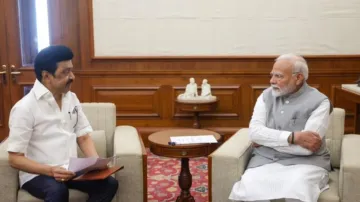Tamil Nadu Chief Minister MK Stalin has addressed a letter to Prime Minister Narendra Modi, advocating for a reconsideration of the Central government's plan to hold Hindi language-oriented events in non-Hindi speaking states. He expressed concerns that such initiatives could negatively impact relationships among regions with distinct linguistic identities.
In his letter, Stalin emphasised the need to acknowledge and celebrate India’s linguistic diversity, stating, "As you are aware, the Constitution of India does not accord national language status to any language. Hindi and English are used only for official purposes such as legislation, judiciary, and communication between the Union Government and the State Governments."
Stalin further argued against promoting Hindi in states where it is not widely spoken. He noted, "In the circumstances, in a multilingual country like India, according to special place to Hindi and celebrating Hindi Month in non-Hindi speaking States is seen as an attempt to belittle other languages."
He proposed that if the Union Government insists on holding such Hindi language events, it should also promote local language celebrations in each state "with equal warmth." Additionally, he suggested that the Government of India could organize special events to honor the richness of all the classical languages recognized in various states, stating, "This could enhance the cordial relationship among all."
Stalin's appeal underscores the importance of inclusivity in India's cultural landscape and aims to foster a sense of unity while respecting regional identities. The letter reflects ongoing discussions about language and identity in a diverse nation.
